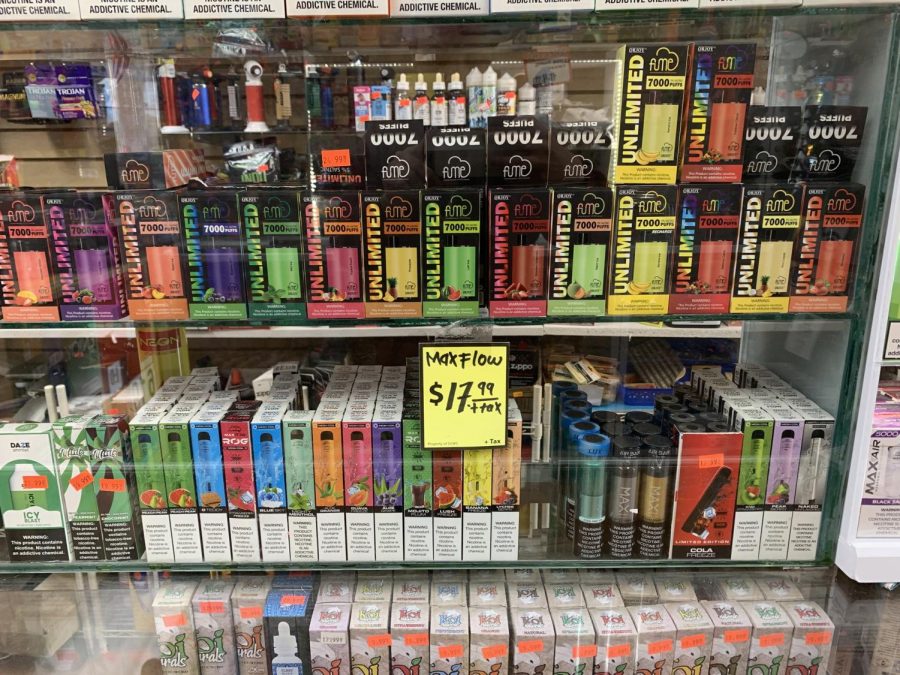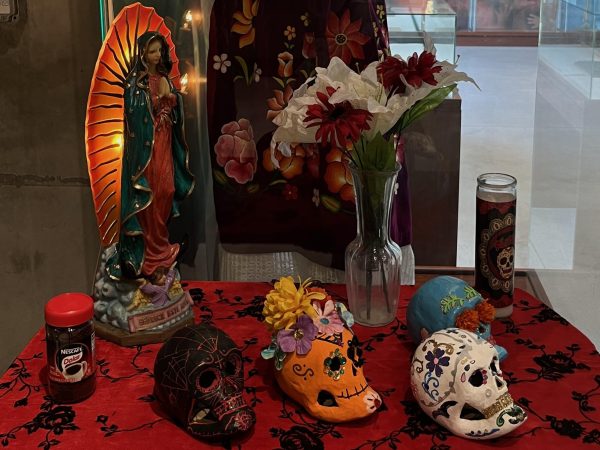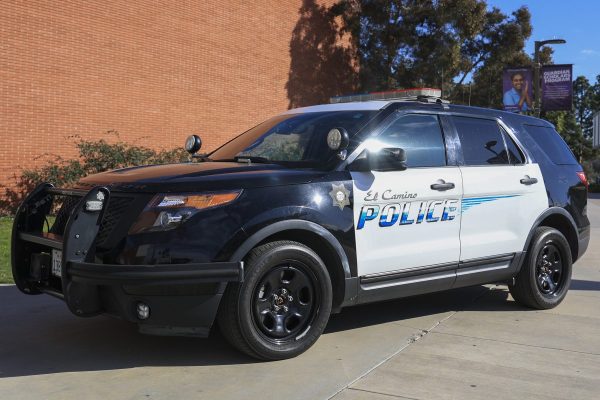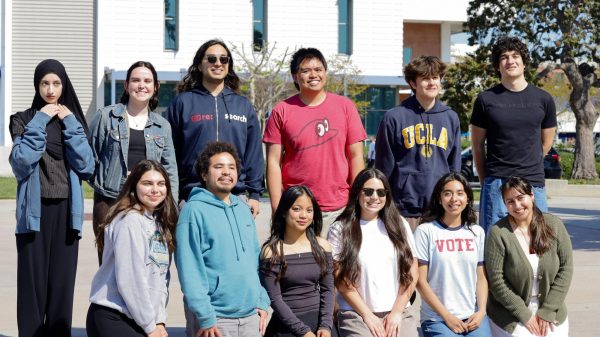Flavored tobacco ban could harm local businesses
Update: California voters upheld Proposition 31 on Nov. 8, 2022.
As a smoke shop owner, Rakan Abdul makes a reasonable percentage of his revenue from the sale of flavored tobacco products and e-cigarettes.
After a 2020 law went into effect banning in-person stores from selling most flavored tobacco products and tobacco product flavor enhancers, Abdul was afraid that it would hinder his business in the community.
The referendum was put up to a vote and officially passed during Nov. 8 midterm election with over 60% of early voters favoring that the ban stays in place. The final results will be certified by Dec. 16 and will go into effect no later than Dec. 21.
“One, it’s killing my business,” Abdul said. “menthols [are] the same for flavored and regular cigarettes… it’s people’s decision on whether they want to smoke.”
According to CalMatters, Proposition 31 gave voters the choice to either rescind the 2020 law prohibiting the legalization and sale of flavored tobacco products or uphold the current ban on the products.
Abdul, the owner of JS Smoke Shop on the corner of Artesia and Crenshaw Blvd., said that the confirmation of the ban could be extremely harmful to his business and that the way people smoke should not be decided by the state.

Owning a total of six smoke shops, Abdul said that 20% of his revenue in Gardena comes from vapes and flavored cigarettes. At an average price of $15 per unit and approximately 30 customers a day, Abdul is losing roughly $13,500 in flavored cigarettes and e-cigarettes revenue per month.
Abdul said that although he is taxed heavily on flavored tobacco products, the high taxes are being invested into programs throughout the state that he sees as a benefit for the community.
The California Electronic Cigarette Excise Tax, enacted on July 1 of this year, imposes a 12.5% tax on all nicotine products for retailers. The funds from the taxes go specifically toward loan repayment grants for California physicians and dentists.
Campaigns on both sides are heavily financed throughout the state. However, the campaign to uphold the ban on flavored tobacco leads with large amounts of expenditures made and contributed to its campaign.
According to the California Secretary of State website, total expenditures for the ‘yes’ vote used its funds for television and print advertisements, campaign consultants, polling research and other spending was approximately $29,170,000 in the 10-month period, ranging between Jan. 1 to Oct. 22.
The California Teachers Association, one of the largest and most powerful unions in the state backing the ban on flavored tobacco, said two million middle and high school students use e-cigarettes and that four out of five children who have used tobacco started with a flavored product.
In addition, the California Teachers Association added that the majority of youth e-cigarette users say they use e-cigarettes “because they come in flavors I like.”
For the ‘no’ vote, total expenditures are significantly lower at approximately $2,185,000 ranging from the same time period. However, the contributions received total $16,577,978 and are mostly from big tobacco companies.

51-year-old Noe Negrete, who owns the smoke shop adjacent to El Camino on Crenshaw Boulevard, told The Union that around 35% of revenue from his store comes from these products.
“If [it becomes] illegal it would cause more uproar and it would release [people’s] frustration, and based on the individual it could lead to violence,” Negrete said.
Negrete said that vapes also help people as a tool for escapism, serving as a relaxant for many.
Political science professor Joshua Casper said there are positives and negatives to both sides of the campaign.
“If the law stays intact the health of those that are smoking tobacco is generally improved,” Casper said. “If we overturn it, we do lose millions of dollars but there are other streams of revenue that make more than that. We still tax a high rate for other tobaccos, [it’s] going to keep other tobaccos for adults, but we’re not gonna worry more about youth using flavored tobacco.”
Casper said that states carry the legal rights of people’s health, so the state legally holds control over the responsibility of its constituent’s health. However, the populace is still given the right to vote on whether or not they want to ban flavored tobacco products
Around the El Camino campus, students shared their opinions about the proposition:

21-year-old graphic design major Anthony Ybarra is against the ban on flavored tobacco and said that people should make their own choices.
“People should do what they want,” Ybarra said. “It’s not harming other people.”

Breanny Brock, an 18-year-old film major, said she would vote “no” for Proposition 31. She said she understands why it is banned but people are still going to do it anyways.
“[Flavored tobacco] is something you can’t fully stop,” Brock said.
While some disagree with the ban, others welcome it as the health and academic performance of students can be hindered by nicotine addiction.

Josue Angeles, a 19-year-old fire emergency tech major, said he would vote ‘yes’ for Proposition 31. He said the law should still be in place because he has seen people who have gotten addicted to tobacco.
“It gets more addicting with flavor,” Angeles said. “More enjoyable.”
18-year-old Kevin Rodriguez said he would vote “yes” on Proposition 31 and keep the ban in place because of public health.
“It’s not healthy,” Rodriguez said.

Music major Derrick Mireles agreed to vote “yes” on Proposition 31 because it would affect students.
“It hinders [academic performance],” Mireles said.
Reporters Anthony Lipari and Samantha Quinonez contributed to this report.
Editor’s Note: Story content updated to reflect the passing of California’s Proposition 31 on Nov. 16, 2022, at 8:53 a.m.








